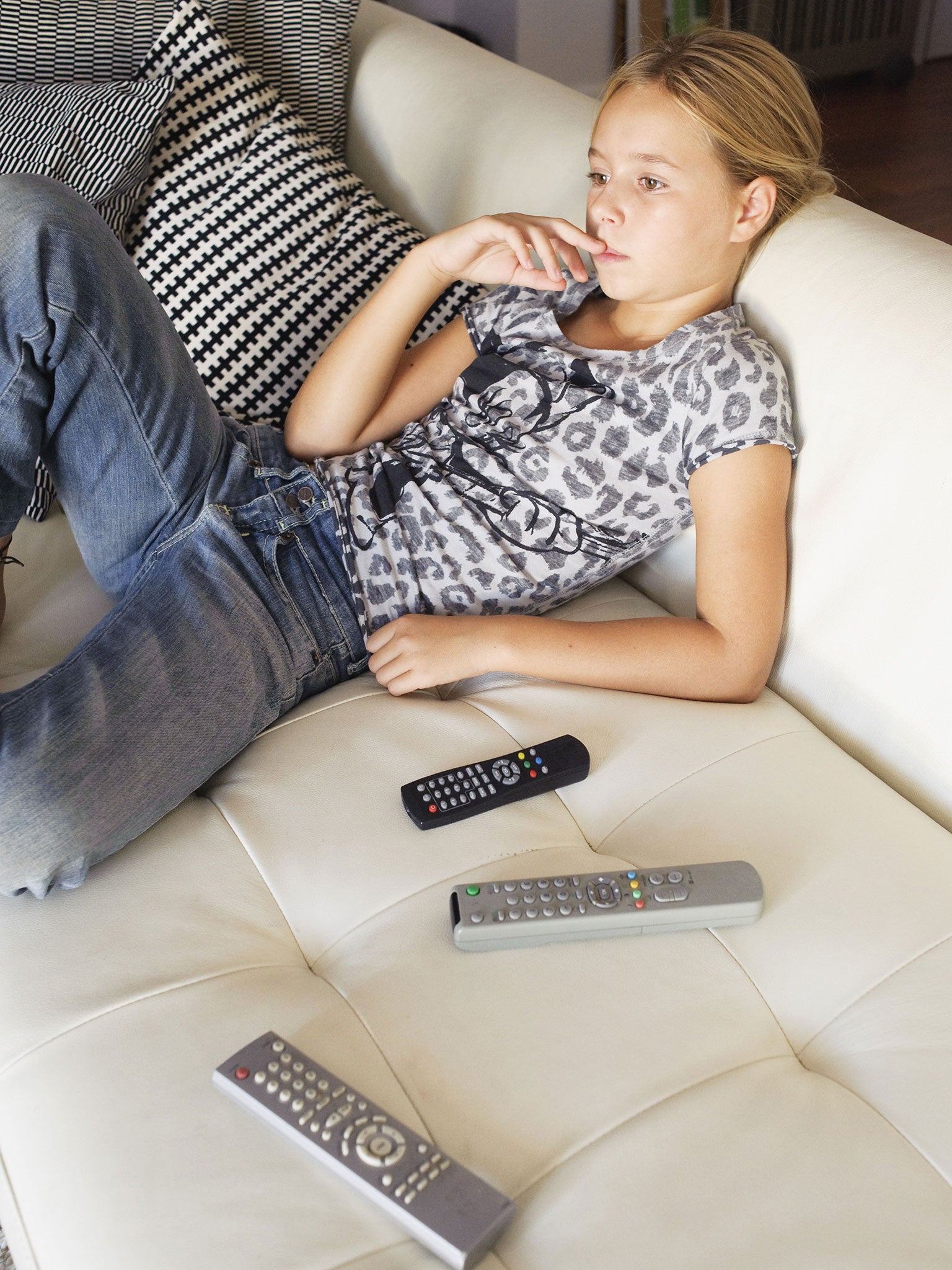Each hour schoolchildren spend watching television sees their GCSE results fall by equivalent of two grades, says new research
The study also found that doing an extra hour of daily homework and reading correlated with teenagers gaining 23.1 more GCSE points

Each hour that schoolchildren spend in front of the television or computer every day sees their GCSE results fall by the equivalent of two grades, warns new research by the University of Cambridge.
In the first study of its kind, researchers analysed the activities of more than 800 teenagers from 18 schools across Cambridgeshire and Suffolk.
For every extra hour of daily screen time, teenagers scored an average of 9.3 fewer GCSE points - the equivalent of dropping two grades in one of their subjects.
Year 10 pupils spend an average of four hours in front of a screen each day – equivalent to dropping 36 points in their GCSEs, according to the paper published in the International Journal of Behavioral Nutrition and Physical Activity.
Lead researcher Dr Kirsten Corder, from the Centre for Diet and Activity Research at the University of Cambridge School of Clinical Medicine, said: “Parents who are concerned about their child’s GCSE grade might consider limiting his or her screen time.”
The study also found that doing an extra hour of daily homework and reading correlated with teenagers gaining 23.1 more GCSE points.
But time spent by teenagers doing sport does not make any difference to their future grades: “suggesting that emphasis on physical activity promotion for health benefits might be most appropriate,” according to the study authors.
might be most appropriate,” according to the study authors.
Responding to the findings, Russell Hobby, general secretary of the National Association of Head Teachers, said: “This is an interesting study which cautiously makes a link between ‘screen time’ and academic success. However, the main reasons that children do well at GCSE are unchanged: Hard work and great teaching.”
And Allan Foulds, president of the Association of School and College Leaders, commented: “Young people have to work hard to achieve good exam results but they also need to have a childhood and enjoy pursuits outside school.”
Join our commenting forum
Join thought-provoking conversations, follow other Independent readers and see their replies
Comments